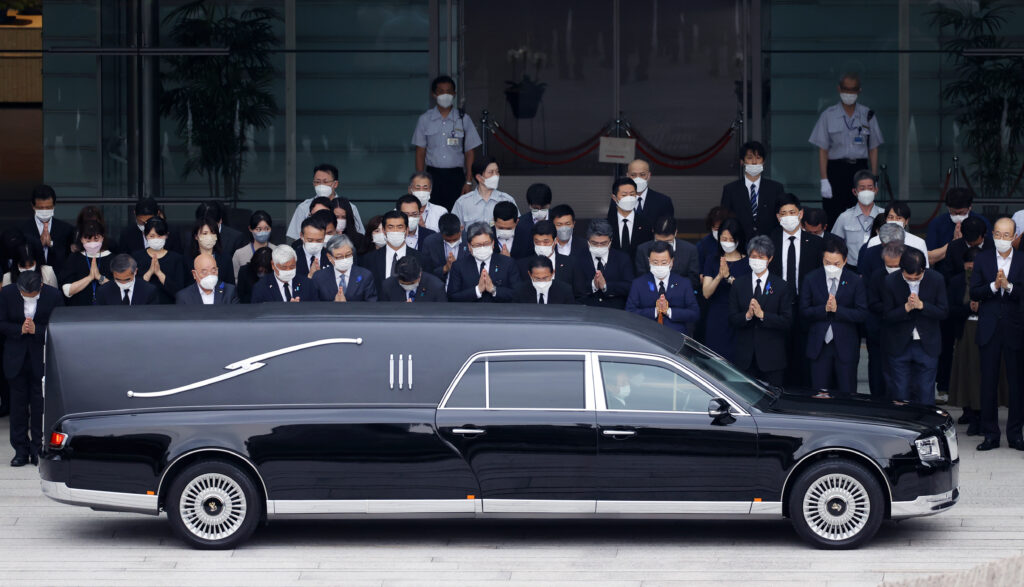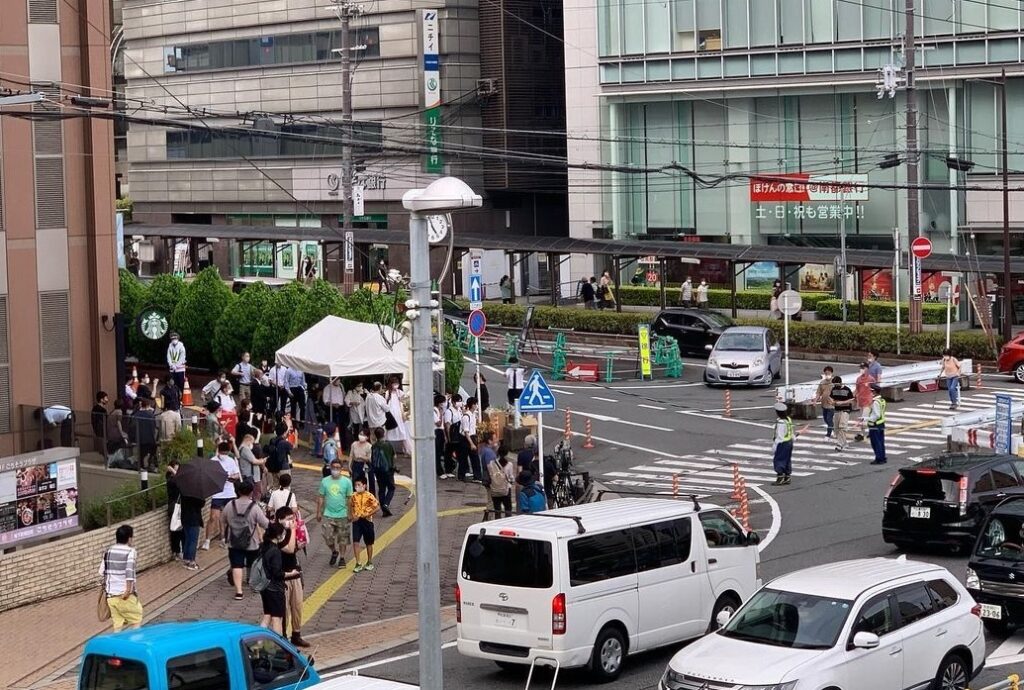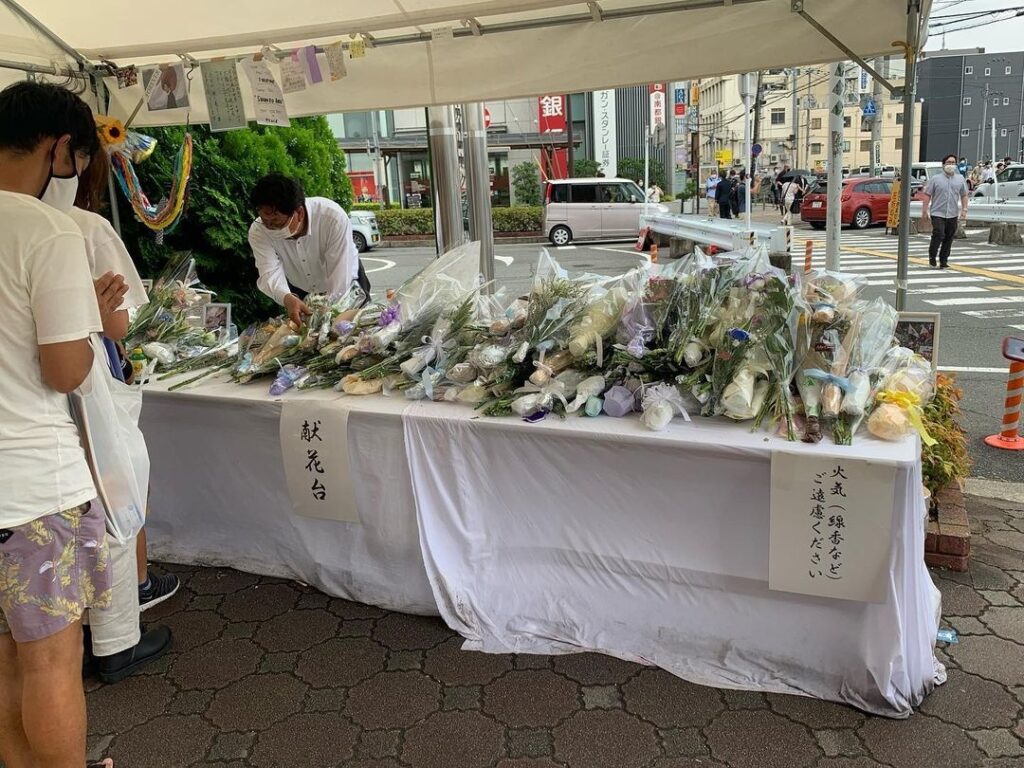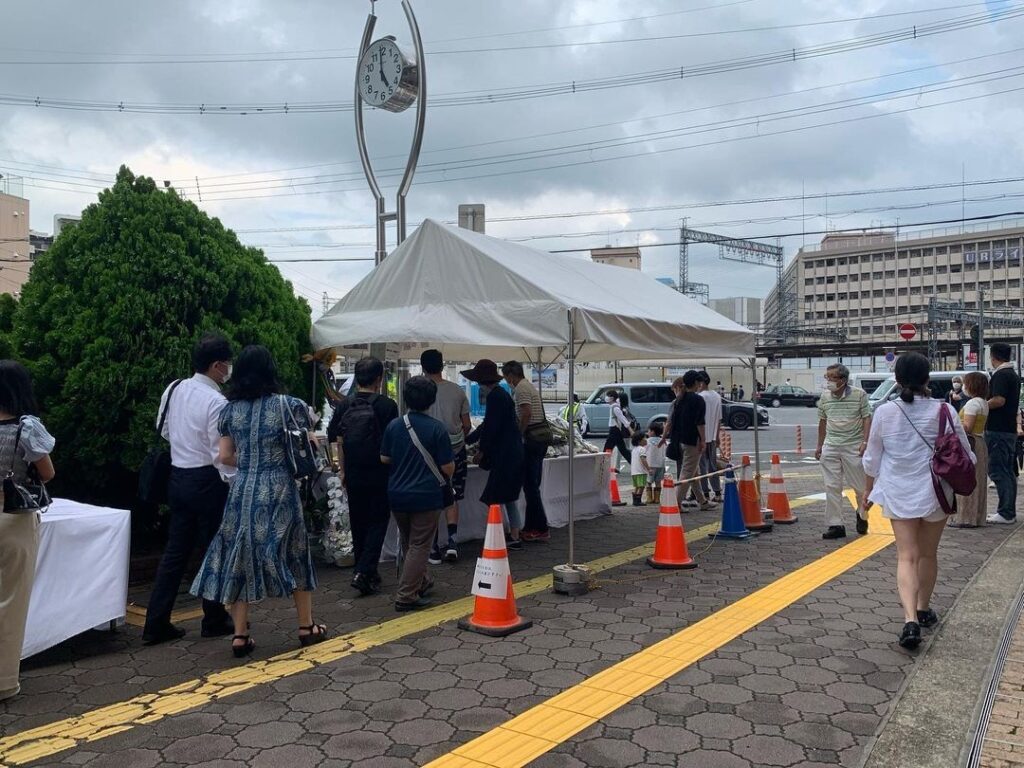
TOKYO(Reuters)Police are on alert as Prime Minister Fumio Kishida’s group’s vehicle stopped in an alley in front of former Prime Minister Shinzo Abe’s home in Shibuya-ku, Tokyo.
Police are on alert as Prime Minister Fumio Kishida’s group’s vehicle stopped in an alley in front of former Prime Minister Shinzo Abe’s home in Shibuya-ku, Tokyo.
the door of the house in Shibuya-ku, Tokyo, where former Prime Minister Shinzo Abe’s body was enshrined, was tightly closed. Around the house, about 20 police officers in uniform watched the Japanese pass by. When a woman in her 40s stopped in front of the main gate for a while and took a posture of praying for repose, a police officer approached and said, “Please move without standing.”
Under the control of the Japanese police, Japanese people from all over the country stood in an alley more than 50 meters away from the main gate to pray for Abe’s repose. No Japanese made a loud noise out of anger at the murder suspect.The killer retaliated religiously

A Japanese man went back and forth for a long time with flowers for condolences and then left somewhere. In the heat of more than 30 degrees, he seemed hesitant because he did not know where to go. Iwama, who is from Shinagawa, Tokyo, said, “It’s getting harder to make ends meet, but I’ve lost a politician who can get through the crisis.” “I feel uneasy that Japan is no longer a safe country,” said Mizuki Furui, 39. More than 1,000 mourners visited the altar set up at the scene of the incident in Nara Prefecture in the morning alone. Narashi is planning to conduct trauma counseling for citizens shocked by the death of former Prime Minister Abe.Since Abe’s shooting death, Japanese society has been rapidly stagnating. Anxiety, a sense of defeat and helplessness are expanding.

The confidence of rebuilding a “strong Japan” is disappearing. Abe put up the slogan ‘Beautiful Japan’ after becoming the youngest prime minister. After the collapse of the bubble economy, he was a politician who faced Japan’s “lost 30 years” and suddenly disappeared.

Moreover, Abe’s shooting and death signaled to the public that Japan was no longer safe. The myth of Japan, a security and security country, has collapsed. The Japan Trauma Stress Association recommended, “Do not watch repeatedly the shooting video or watch TV news broadcasts while eating.” Atsushi Shigemura, a professor at Meiji University, said, “As it is a shocking incident where a former prime minister who everyone knows is shot, there is a high possibility that people will easily empathize,” adding, “If you feel uncomfortable (with the shooting video), you should stop watching immediately.”
The “manual-moving system” that Japanese value the most and feel stable did not work this time. There were about 10 bodyguards around Abe, but no one noticed even though a suspicious figure approached a close distance of 6 to 7 meters. In particular, there was a time of three seconds between the first explosion and the second firing, but no one threw himself in front of former Prime Minister Abe or made him lie face down. The manual also did not work when the cruise ship sank in Hokkaido this April, said Lee Kei, a 40-year-old lawyer living in Shinjuku.
MIKE CHOI
ASIA JOURNAL

